#marjorie taylor (1974 )
Text

#taylor’s version#taylor swift#fearless#red lips#1989 album#holding hands#all too well#folklore#evermore#swifties#taylorstans#marjorie taylor (1974 )#i love you taylor
3 notes
·
View notes
Text
How Lopsided New District Lines Deepen the U.S. Partisan Divide
How Lopsided New District Lines Deepen the U.S. Partisan Divide
THE WOODLANDS, Texas — Representative Dan Crenshaw was tagged as a rising Republican star almost from the moment of his first victory: A conservative, Harvard-educated, ex-Navy SEAL who lost his right eye in Afghanistan, he bucked the 2018 suburban revolt against Donald J. Trump to win a House seat in the Houston suburbs.
Mr. Crenshaw won again in 2020, handily, even as Mr. Trump carried his…

View On WordPress
#Collins#Christian#Crenshaw#Dan (1984- )#Democratic Party#Elections#Greene#Marjorie Taylor (1974- )#House of Representatives#Luttrell#Morgan#McCarthy#Kevin (1965- )#Redistricting and Reapportionment#Republican Party#Texas#Trump#Donald J#United States Politics and Government#Woodlands#The (Tex)
0 notes
Link
Twitter said on Monday that it was suspending Rep. Marjorie Taylor Greene (R-GA) from its service for 12 hours after she posted messages that violated its policy against sharing misleading information about the coronavirus, the New York Times reports,
0 notes
Text
Familia Snape
Primera Generación
¤ Morphin Nikolai Lazarus (1347-????) y Tallulah Aurelia Snape (1351-????)
Segunda Generación
¤ Gabriel Soren Snape (1389-????) y Conan Levi Malfoy (1834-???)
Tercera Generación
¤ Albus Percival Wulfric Brian Dumbledore (1881-???) y Gellert Amadeus Grindelwald (1883-????)
¤ Aberforth Florian Leighton Soren Dumbledore (1883-????) y Belvina Black (1886-????)
¤ Ariana Odolette Wilhemina Dumbledore (1885-????) y Arcturus Black (1884-????)
¤ Tom Marvolo Riddle (1926-????) y Marcus Eli Mulciber (1926-???)
¤ Valens Basilius Snape (1928-????) y Charles Conan Levin (1924-????)
¤ Tobias Vincent Snape (824-????) y Eileen Aiko Snape (1938-????)
¤ Pamela Demetria Malfoy (1931-????) y Elias Paul Voorhees (1928-????)
¤ Abraxas Ariel Malfoy (1936-????) y Persephone Avery (1935-???)
¤ Evangeline Ethel Malfoy (1938-????) y Lazarus Granville Sparda (????-????)
Cuarta Generación
¤ Crendence Aurelius Grindelwald (1901-????) y Lycoris Hesper Black (1904-????)
¤ Modesty Orianna Grindelwald (1918-????) y Michael Monroe Miller (1916-????)
¤ Valentine Desmond Dumbledore (1904-????) y Leroy Samuel Cooley (1906-????)
¤ Octavius Theodore Dumbledore ( 1908-????) y Minerva Ursula Parker (1905-????)
¤ Cassandra Eliza Dumbledore (1914-????) y Zivar Pollux Gallanford (1910-????)
¤ Callidora Eridanis Black (1915) y Harfang Ernest Longbottom (1913-????)
¤ Cedrella Oriana Black(1917-????) y Septimus Ronald Weasley (1915-????)
¤ Charis Scorpia Black (1919-????) y Caspar Dorian Crouch (1916-????)
¤ Trish Clarice Riddle (1954-????) y "Lady" Mary Ann Arkham (1958-????)
¤ Vanessa Octavia Riddle (1959-????) y Mike Spencer Peters (1952-????)
¤ Delphinie Savannah Riddle (1983-????) y Serena Angelette Denford (1981-????)
¤ Dominika Hazel Levin (1946-????) y Thomas Downey Richardson (1944-????)
¤ Vincent Alexander Levin (1951-????) y Daphne Rosie Campbell (1953-????)
¤ Niven Finnian Levin (1955-????) y River Aura Stone (1953-????)
¤ Devin Ivan Levin (1959-????) y Malorie Estella Van Kleiss (1962-????)
¤ Severus Tobias Snape (1960-????) y Ulaz Devereux Snape (1958-????)
¤ Ryou Nathan Snape (1971- ???) y Krolia Diane Kogane
¤ Jason Ezra Voorhees (1953-???) y Michael Gideon Myers (1957-????)
¤ Diana Madeline Voorhees (1961-????) y Mason Samuel Kimble (1960-????)
¤ Aphrodite Medea Malfoy (1952-????) y Ethan Marcus Nott (1950-????)
¤ Lucius Abraxas Malfoy (1954-????) y Narcissa Meissa Black (1955-????)
¤ Icarus Theodore Malfoy (1956-????) y Cassius Hastings (1957-????)
¤ Orpheus Lev Malfoy (1959-????) y Elsie Cobris (1959-????)
¤ William Joseph Dixon (1960-????) y Cassandra Janeth Lewis (1963-????)
¤ Kore Allegra Malfoy (1961-????) y Regulus Arcturus Black (1961-????)
¤ Pandora Luna Malfoy (1963-????) y Xenophilius Leland Lovegood (1961-????)
¤ Vergil Amos Sparda (1956-????) y Faith Mackenzie Myron (1959-????)
¤ Dante Alastor Sparda (1956-????) y Hope Melissa Myron (1959-????)
Quinta Generación
¤ Bastian Lynx Grindelwald (1924-????) y Riven Alexander Blackwood (1942-????)
¤ Theodore Niven Grindelwald (1929-????) y Amelie Luna Roberts (1931-????)
¤ Piper Delilah Grindelwald (1934-????) y Alvin Nicholas Dream (1932-????)
¤ Madeline Senka Miller (1933-????) y April Clarissa Wilson (1931-????)
¤ Percival Valentine Miller (1937-????) y Damien Thomas Haywood (1939-????)
¤ Benjamin Caleb Miller (1941-????) y Abigail Aura Cooper (1938-????)
¤ Micah Vladimir Miller (1945-????) y Louis William Afton (1946-????)
¤ Albia Bellona Miller (1949-????) y Gideom Silas Murphy (1945-????)
¤ Manon Ariana Miller (1952-????) y Cassius Roderick Abbott (1950-????)
¤ Ian Mason Dumbledore (1924-????) y Bellona Damara Huxley (1921-????)
¤ Ada Demetria Dumbledore (1929-????) y Azura Jasmine Brooks (1927-????)
¤ Kitty Xanthe Dumbledore (1933-????) y Ryan Christopher Everett (1930-????)
¤ Charlotte Macellina Dumbledore (1938-????) y Sebastian Artemis Jensen (1935-????)
¤ Demetrius Kieran Dumbledore (1942-????) y Ulric Frederick Golding (1940-????)
¤ Fabian Leonard Gallanford (1931-????) y Evan Diaval Merton (1935-????)
¤ Sarah Elizabeth Gallanford (1935-????) y Juliette Liona Lancework (1933-????)
¤ Marjorie River Gallanford (1938-????) y Alder Amadeus Holecraft (1940-????)
¤ Edward Florian Longbottom (1934-????) y Augusta Margaret Longbottom (1936-????)
¤ Algie Lazarus Longbottom (1937-????) y Enid Verna Longbottom (1939-????)
¤ Daniel Vincent Longbottom (1942-????) y Coraline Eliza Longbottom (1945-????)
¤ Gabriel Roderick Weasley (1941-????) y Malia Juniper Lenington (1943-????)
¤ Norman Carlton Weasley (1945-????) y Doris Ariana Armstrong (1947-????)
¤ Arthur Marlon Weasley (1950-????) y Molly Elliana Prewett (1950-????)
¤ Casthora Aura Crouch (1934-????) y Aaron Leonard Luthor (1930-????)
¤ Aries Adeline Crouch (1937-????) y Theresa Rose Taylor (1935-????)
¤ Bartemius Crouch (1940-????) y Rebecca Maia Crouch (1941-????)
¤ Lilith Moira Riddle (1983-????) y julian Cameron Grey (1980-????)
¤ Theodore August Peters (1976-????) y Magnus Roman Watson (1978-????)
¤ Hazel Opal Peters (1983-????) y Meredith Mavis Monroe (1981-????)
¤ Bloom Larissa Peters (1997-????) y Sky Aurelius Peters (1997-????)
¤ Cora Stephanne Riddle (2005-????) y Alucard Magnus Holland (2002-????)
¤ Francis Ezra Riddle (2008-????) y Archibald Niven Allender (2008-????)
¤ Aaron Christopher Riddle (2012-???) y Verena Michelle Dyer (2010-????)
¤ Joshua Stephen Riddle (2013-????) y Esther Amalia Holt (2015-????)
¤ Charles Samuel Riddle (2016-????) y Ruby Stephanie Saffron (2018-????)
¤ Iris Aurelia Riddle (2018-????) y Marshall Everett Conrad (2016-????)
¤ Theophania Calliope Richardson (1964-????) y Corinne Roxanne Everleigh (1962-????)
¤ Arabella Beatrix Richardso (1968-????) y Henry Oliver Brooks (1966-????)
¤ Kai Dominick Richardson (1971-????) y Flynn Milo Wolf (1969-????)
¤ Willow Cosima Levin (1969-????) y Nicoletta Pomona Wilford (1967-????)
¤ Fern Violet Levin (1972-????) y Marie Honoria Ollivander (1970-????)
¤ Euphemia Alessandra Levin (1974-????) y John Florean Palmer (1972-????)
¤ Dorothea Giovanna Levin (1978-????) y Elladora Eloise Gibson (1975-????)
¤ Salazar Lucius Levin (1973-????) y Holly Avalon Barnes (1970-????)
¤ Eleanor Hope Levin (1977-????) y Savannah Genevieve Shaw (1975-????)
¤ Gracie Isadora Levin (1979-????) y Marvin Declan Sullivan (1983-????)
¤ Alec Aurelian Levin (1982-????) y Claire Piper Johan (1980-????)
¤ Mason Ezekiel Levin (1986-????) y Clementine Octavia Albion (1983-????)
¤ Lotor Comet Snape (????-????) y Giovanni Benjamin Lestrage (1974-????)
¤ "Moon Demon" Darius Angelo Snape (1973-????) y "Dark Angel" Arianne Alysson Snape
¤ "Killer Shadow" Lazarus Ignatius Snape (1973-????) y "Ice Demon" Urania Calliope Snape
¤ Morterius Snape (1973-???) y Hisirdoux Artemas Casperan (1098-????)
¤ Severina Tabitha Snape (1975-????) y Valentine Orion Dencort (1972-????)
¤ Ursa Destiny Snape (1975-????) y Vladimir Micah Masters (1964-????)
¤ Regulus Orion Snape (1977-????) y Angel Archibald Mountford (1975-????)
¤ Cygnus Arcturus Snape (1977-????) y Cassius Warrington (1977-????)
¤ Elle Rigel Snape (1979-????) y Touta Matsuda (1978-????)
¤ Beyond Aurelian Snape (1979-????) y Teru Mikami (1982-????)
¤ Emma Elizabeth Snape (1983-????) y Verna Clarissa Rawlinson (1981-????)
¤ Eileen Umbra Snape (1983-????) y Samara Enola Norton (1984-???)
¤ Ariel Kolithace Snape (1985-????) y Clementine Amarah Gorgon (1985-????)
¤ Alexander Valens Snape (1985-????) y Cassidy Vienna Keller (1987-????)
¤ Lysander Nikolaus Snape (1985-????) y Gabrielle Delacour (1986-????)
¤ Minerva Evangeline Snape (1986-????) y Alexia Mary Ray (1989-????)
¤ Walburga Aries Snape (1988-????) y Lynn Juniper Dumbar (1986-????)
¤ Druella Angelette Snape (1988-????) y Lazarus Julian Norton (1991-????)
¤ Raphaela Bellatrix Snape (1990-????) y Finnegan Glenn Gardens (1988-????)
¤ Selena Narcissa Snape (1993-????) y Barbara Rose Kidman (1996-????)
¤ Regris Niven Snape (2001-????) y Acxa Valda Snape (2003-????)
¤ Kevin Ethan Snape (2001-????) y Cooper Joseph Daniels (1999-????)
¤ Gwendolyn Hiroko Snape (1994-????) y Emily Flora Blunder (1997-????)
¤ Ezra Yamato Snape (1998-????) y Aidan Vincent Holdcroft (1999-????)
¤ Ryan Yoshio Snape (2001-????) y Janet Mary Eastmond (2008-????)
¤ Keith Akira Snape (2005-????) y James Griffin (2005-????)
¤ Mako Etha Snape (2006-????) y Patricia Harriet Smith (2009-????)
¤ Yuriko Edith Snape (2008-????) y Harvey Everett Aylesworth (2006-????)
¤ Morgana Kendra Voorhees (1973-????) y Carrie Margaret White (1970-????)
¤ Jessica Lorna Kimble (1980-????) y Steven Freeman (1978-???)
¤ Dante Dorian Nott
¤ Dominick Edgar Nott
¤ Theodore Phineas Nott (1979-????) y Pansy Genevieve Parkinson (1980-????)
¤ Audrey Andromeda Malfoy y Andre Perseus Bourgeois
¤ Gabriel Bastian Malfoy y Emilie Calliope Graham de Vanily
¤ Roynard Hydra Malfoy y Violet Rowena Deekers
¤ Raymond Lynx Malfoy y Cedric Atticus Diggory
¤ Draco Lucius Malfoy y Astoria Coraline Greengrass
¤ Marcus Malfoy
¤ Elias Malfoy
¤ Magenta Malfoy
¤ Daphne Malfoy
¤ Elladora Malfoy
¤ Garlan Malfoy
¤ Farlan Malfoy
¤ Merle Ariel Dixon y "Jesus" Paul Finnegan Rovia
¤ Hope Leah Dixon
¤ Carl Thomas Dixon
¤ Levi Armand Dixon
¤ Daryl Hunter Dixon y Rick Jonah Grimes
¤ Nigellus Aries Black
¤ Cygnus Alphard Black
¤ Walburga Vera Black
¤ Phineas Arcturus Black
¤ Cassius Florian Lovegood
¤ Myra Hestia Lovegood y
¤ Luna Pandora Lovegood
¤ Vitale Astaroth Sparda
¤ Neron Asura Sparda
¤ Merak Emory Sparda
¤ Armand Vincent Sparda
¤ Nicholas William Sparda
¤ Septimus Conan Sparda
5 notes
·
View notes
Text
How Many Republicans Are In The Us House
New Post has been published on https://www.patriotsnet.com/how-many-republicans-are-in-the-us-house/
How Many Republicans Are In The Us House

What Is The New Balance Of Power In The House
Rep. Schiff: Only Question Is How Many In GOP Will Support Impeachment | Morning Joe | MSNBC
House Democrats held onto their majority but lost seats to Republican challengers.
More than a dozen incumbent Democrats lost re-election bids, despite earlier projections they could gain up to 15 seats.
Democrats took the chamber after they netted 41 seats in the 2018 midterm elections, their largest single-year pickup since the post-Watergate midterms of 1974. But some of those new Democrats were among the partys losers in 2020.
Voting With The Party
This section was last updated in 2014.
The following data comes from OpenCongress, a website that tracks how often members of Congress vote with the majority of their party caucus.
The average Republican voted with the party approximately 93.6 percent of the time.
The average Republican voted with the party approximately 94.3 percent of the time.
The top Republican voted with the party approximately 98.2 percent of the time.
The bottom Republican voted with the party approximately 75.1 percent of the time.
Here Are All Of The House Republicans Who Voted To Impeach Donald Trump
Ten members of the GOP joined with Democrats in the vote.
President Donald Trump impeached for ‘incitement of insurrection’
The House of Representatives has voted to impeach President Donald Trump — making him the only president in American history to be impeached twice.
Unlike his first impeachment in 2019, 10 Republicans joined Democrats to charge Trump for the “incitement of insurrection” for his role in the Jan. 6 attack on the U.S. Capitol with a final vote of 232-197.
Some Republicans may have feared for their own safety if they voted for impeachment, Rep. Adam Kinzinger, one of those who voted against Trump, said. Kinzinger told ABC’s “Powerhouse Politics” podcast that some members of his party are likely holding back from voting for impeachment due to fear of highlighting their own participation in supporting the president’s false claims of election fraud.
Democrat Jason Crow, of Colorado, relayed similar thoughts in an interview with MSNBC on Wednesday morning.
“I had a lot of conversations with my Republican colleagues last night, and a couple of them broke down in tears talking to me and saying that they are afraid for their lives if they vote for this impeachment,” he said.
Here is a list of the 10 Republicans who took a stance against Trump:
Rep. Adam Kinzinger, R-Ill.“It’s not going to be some ‘Kumbaya moment’ on the floor — it’s going to be an awakening by the American people to hold their leaders accountable to their rhetoric,”
America Needs A Bigger House
435
Rep.
This is the first in a two-part series on how to make the House of Representatives more representative. Read part two here.
Were nearly two decades into the 21st century, so why is America still operating with a House of Representatives built for the start of the 20th?
The Houses current size 435 representatives was set in 1911, when there were fewer than one-third as many people living in the United States as there are now. At the time, each member of Congress represented an average of about 200,000 people. In 2018, that number is almost 750,000.
This would shock the Constitutions framers, who set a baseline of 30,000 constituents per representative and intended for the House to grow along with the population. The possibility that it might not that Congress would fail to add new seats and that district populations would expand out of control led James Madison to propose what would have been the original First Amendment: a formula explicitly tying the size of the House to the total number of Americans.
The amendment failed, but Congress still expanded the House throughout the first half of the nations existence. The House of Representatives had 65 members when it was first seated in 1789, and it grew in every decade but one until 1920, when it became frozen in time.
500
1950
2000
Current
Current: 4 seats
Expanded: 6 seats
The bottom line is that the House today is far too small, and that poses a big danger to American democracy.
United Kingdom
250m
Comparison To The Senate

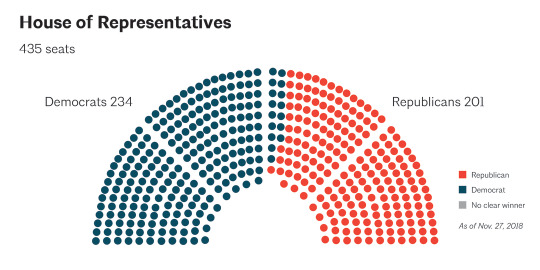
As a check on the regional, popular, and rapidly changing politics of the House, the Senate has several distinct powers. For example, the “advice and consent” powers are a sole Senate privilege. The House, however, has the exclusive power to initiate bills for raising revenue, to impeach officials, and to choose the president if a presidential candidate fails to get a majority of the Electoral College votes. The Senate and House are further differentiated by term lengths and the number of districts represented: the Senate has longer terms of six years, fewer members , and larger constituencies per member. The Senate is referred to as the “upper” house, and the House of Representatives as the “lower” house.
United States House Of Representatives Seats By State
verified
Our editors will review what youve submitted and determine whether to revise the article.
The U.S. Congress consists of two houses, the House of Representatives and the Senate. Each state elects two senators, while seats in the House of Representatives are apportioned by state according to population, with each state receiving a minimum of one representative. After each decennial census, the House of Representatives used to increase in size, but in the 1910s overall membership was capped at 435 . Now, after each census, legislative seats are reapportioned, with some states increasing their number of representatives while other states may lose seats.
The number of representatives in the U.S. House of Representatives by state is provided in the table.
U.S. congressional apportionment
Gop Members Who Voted Against Giving Visas To Afghan Interpreters Suddenly Have A Lot To Say About The Us Withdrawal
Find your bookmarks in your Independent Premium section, under my profile
Republican lawmakers who voted against granting visas to 8,000 Afghans who supported the United States war effort against the Taliban are facing renewed criticism.
Last month, the House of Representatives gave near-unanimous support to allow the interpreters and contractors who worked with the US military be allowed to relocate under the Special Immigrant Visa programme.
The resolution, introduced by Democratic Congressman Jason Crow, passed by 407 votes to 16.
Just a reminder that on July 22, 2021, these 16 Members of Congress, all Republican, voted AGAINST evacuating our Afghan interpreters and their families.
Ron Filipkowski August 16, 2021
Those who voted against were all Republicans, and included far-right members Lauren Boebert and Marjorie Taylor Greene.
The Problem With Existing Districts
Although legislators should reflect the voters of their state, they often do not. In Maryland, for example, Republicans received 37 percent of the votes for the U.S. House of Representatives but won only 13 percent of the congressional seats. And in North Carolina, Democrats received 48 percent of the vote for the U.S. House of Representatives but won only 26 percent of the congressional seats.
Figure 1 shows how well legislatures reflect the voting patterns of the population for each state and at each level of governmentstate House, state Senate, and U.S. House of Representatives. The percentage displayed for each state is the degree to which districts disproportionately favor 1 of the 2 major political parties, calculated by comparing the total percentage of votes cast for Democratic and Republican candidates to the total percentage of elections won by Democratic and Republican candidates, and excluding both votes and wins for nonmajor-party candidates. Biases in favor of Democrats are highlighted in blue, and biases in favor of Republicans are highlighted in red. The data reveal substantial biases in favor of each party. Moreover, it shows that biased districts are widespreadabout two-thirds of all state House, state Senate, and U.S. House delegations are biased in favor of one party or the other by a rate of at least 5 percent.
Trump Pick Wins Us House Special Republican Primary Election In Ohio
US Midterms 2018: Democrats take the House and Republicans keep the Senate | #GME
Vehicles are parked outside the U.S. Capitol building the morning the Senate returned to session in Washington, DC, U.S., July 31, 2021. REUTERS/Elizabeth Frantz/File Photo
WASHINGTON, Aug 3 – Mike Carey, a coal lobbyist endorsed by former President Donald Trump, won a crowded primary contest on Tuesday for the Republican nomination to a seat in the U.S. House of Representatives from Ohio’s 15th district.
With 96.5% of precincts reporting, Carey was ahead of his closest contender, state representative Jeff LaRe, by 37% to 13.3%, results from the Ohio secretary of state’s office showed.
The outcome in Ohio’s traditionally Republican 15th District south of Columbus was being closely watched as a measure of Trump’s clout in the Republican Party, coming just a week after a Trump-backed candidate for the U.S. Congress suffered a surprise loss to a fellow Republican in north Texas.
“Tonight, Republicans across Ohio’s 15th Congressional District sent a clear message to the nation that President Donald J. Trump is, without a doubt, the leader of our party,” Carey declared in a statement after his victory.
Trump also issued a statement thanking Ohio voters and praising the “Great Republican win for Mike Carey. Big numbers!”
“We have looked across the promised land, but … we will not cross the river,” Turner told supporters at an election night watch party outside Cleveland.
Democrats currently have a narrow 220-212 majority in the U.S. House of Representatives.
Why The Number Of House Members Hasn’t Changed Since 1913
There are still 435 members of the House of Representatives a century later because of the Permanent Apportionment Act of 1929, which set that number in stone.
The Permanent Apportionment Act of 1929 was the result of a battle between rural and urban areas of the United States following the 1920 Census. The formula for distributing seats in the House based on population favored “urbanized states” and penalized smaller rural states at the time, and Congress could not agree on a reapportionment plan.
“After the 1910 census, when the House grew from 391 members to 433 , the growth stopped. Thats because the 1920 census indicated that the majority of Americans were concentrating in cities, and nativists, worried about of the power of ‘foreigners,’ blocked efforts to give them more representatives,” wrote Dalton Conley, a professor of sociology, medicine and public policy at New York University, and Jacqueline Stevens, a professor of political science at Northwestern University.
So, instead, Congress passed the Permanent Apportionment Act of 1929 and sealed the number of House members at the level established after the 1910 census, 435.
How The Current Gerrymandering Landscape Was Formed
Gerrymandering has been a reality in the United States for a long time; the term dates back to 1812, and the practice itself predates the Constitution. The fight against gerrymandering, therefore, has been shaped in part by a justifiable pessimism about the prospects of getting self-interested politicians to fix the system through legislation. Rather, advocates for reform have often been focused on curbing the most egregious abuses of the redistricting processgerrymanders aimed at disenfranchising entire communities on the basis of raceand extreme, intentional gerrymanders by partisan incumbents. These fights have most often taken place in the courts, where incumbent politicians have less sway.
The long fight against gerrymanders that exclude communities of color
The United States has a long history of depriving nonwhite citizens of their political rights. Only as the result of a long and hard-fought struggle have African Americans been able to secure representation in Congress and in their state and local governments. Although African Americans and other underrepresented communities have made substantial gains, there is still a long way to go for communities of color to have political power commensurate with their numbers.
The court-focused fight against partisan gerrymandering
The challenge of educating the public about gerrymandering
Results Summary And Analysis
The Democratic Party won control of the House of Representatives in the 2018 midterm elections. The Democrats gained a net total of 41 seats from the total number of seats they had won in the 2016 elections. This was their largest gain of House seats in an election since the 1974 elections, when the Democrats gained 49 House seats. Democrats won the popular vote by more than 9.7Â million votes or 8.6%, the largest midterm margin for any party and the largest margin on record for a minority party.
According to the Associated Press statistical analysis, gerrymandering cost the Democrats an additional sixteen House seats from Republicans.
Voter turnout in this election was 50.3%, the highest turnout in a U.S. midterm election since 1914.
Note that the results summary does not include blank and over/under votes which were included in the official results or votes cast in the voided election in North Carolinas 9th congressional district.
â
What Was The Outlook Prior To The Election


Republicans needed to get to 218 seats to win back the majority they lost in 2018. The National Republican Congressional Committee, the campaign arm of House Republicans, in early 2019 identified dozens of Democratic-held districts to target. They included 30 Democrats who were elected or re-elected in 2018 in districts that voted for President Donald Trump in 2016. All but one Dave Loebsack of Iowa sought re-election. Most were first-term members who defeated or succeeded Republicans in the 2018 election. Republicans won some of these Trump Democrat districts but needed to unseat most to win back control of the House.
The Democratic Congressional Campaign Committee, the campaign arm of House Democrats, identified more than 40 Frontline Democrats it expected to have very competitive re-election campaigns. Many of these members represented suburban districts that have diversified their populations in recent years. In most of these districts, Democrats were running for re-election for the first time. The Frontline Democrats amassed large campaign funds.
Democrats also identified more than three dozen Republican-held districts they intended to target, including seven in Texas.
Democrats also made a play for the suburban Texas districts of retiring Republican Reps. Pete Olson of the 22nd District and Kenny Marchant of the 24th District. They lost the 22nd District, but the 24th is currently too close to call, with Republican Beth Van Duyne leading.
Arguments For Expanding The Number Of House Members
Advocates for increasing the number of seats in the House say such a move would increase the quality of representation by reducing the number of constituents each lawmaker represents. Each House member now represents about 710,000 people.
The group ThirtyThousand.org argues that the framers of the Constitution and the Bill of Rights never intended for the population of each congressional district to exceed 50,000 or 60,000. The principle of proportionally equitable representation has been abandoned, the group argues.
Another argument for increasing the size of the House is that is would diminish the influence of lobbyists. That line of reasoning assumes that lawmakers would be more closely connected to their constituents and therefore less likely to listen to special interests.
Were Also On Social Media
GovTrack.us is an independent website tracking the status of legislation in the United States Congress and helping you participate in government. Now were on Instagram too!
Follow on Instagram for new 60-second summary videos of legislation in Congress.
Follow on Twitter for posts about legislative activity and other information were tracking, and some commentary.
And please consider supporting our work by becoming a monthly backer on Patreon or leaving a tip.
Incumbents Defeated In Primary Elections
The following table lists incumbents defeated in 2020 House primary elections or conventions.
Incumbents defeated in primaries
See also: Incumbents defeated in 2018 congressional elections
In the 2018 midterm elections, 378 U.S. House incumbents ran for re-election. This was the lowest number of U.S. House incumbents seeking re-election since 1992.
Thirty-four incumbentsâ9 percentâlost their re-election bids. That included two Democrats and 32 Republicans. This was the highest percentage of incumbents defeated since 2012, when 10.2 percent were not re-elected.
The following data for congressional re-election rates from 2000 to 2016 was reported in Vital Statistics, a joint research project of the Brookings Institution and the American Enterprise Institute. Find the original datasets and methodology here. Data for the 2018 election came from Ballotpedia.
Defeated U.S. House incumbents by party, 2000-2018 Year
97.8
Important Dates And Deadlines
Chuck: House GOP Giving Up Time Shows How Much They ‘Don’t Have To Say’ On Impeachment | MTP Daily
The table below lists filing deadlines and primary dates in each state for Democratic Party and Republican Party candidates for congressional and state-level office.
Primary dates and filing deadlines, 2020 State
The embedded spreadsheet below details filing requirements for major-party and unaffiliated congressional candidates in 2020.
United States House Of Representatives
Jump to navigationJump to search117th United States CongressList of United States state legislatures
United States House of Representatives Flag of the U.S. House of Representatives Type Plurality voting in 46 statesVaries in 4 states
The United States House of Representatives is the lower house of the United States Congress, with the Senate being the upper house. Together they compose the national bicameral legislature of the United States.
The House’s composition is established by Article One of the United States Constitution. The House is composed of representatives who sit in congressional districts allocated to each state on a basis of population as measured by the U.S. Census, with each district having one representative, provided that each state is entitled to at least one. Since its inception in 1789, all representatives have been directly elected. The number of voting representatives is fixed by law at 435. If enacted, the DC Admission Act would permanently increase the number of representatives to 436. In addition, there are currently six non-voting members, bringing the total membership of the House of Representatives to 441 or fewer with vacancies. As of the 2010 Census, the largest delegation is that of California, with 53 representatives. Seven states have only one representative: Alaska, Delaware, Montana, North Dakota, South Dakota, Vermont, and Wyoming.
How Many Senators Are Chosen
The Senate of the United States shall be composed of two Senators from each State, elected by the people thereof, for six years; and each Senator shall have one vote. The electors in each State shall have the qualifications requisite for electors of the most numerous branch of the State legislatures.
How A Record Number Of Republican Women Got Elected To Congress
Conston contends that Republicans had better messengers for a more persuadable message on the economy and cultural issues for undecided swing voters. CLF spent $140 million on ads this year that sounded similar to the message used in an ad against freshman Rep. Joe Cunningham, D-S.C., that said he was “backed by lobbyists and radicals who want to defund the police. And he backs Biden. That means higher taxes.” Cunningham lost.
The coronavirus pandemic also made campaigning itself a cultural and tactical issue in competitive races. Many Republicans continued to hold in-person events, rarely wore masks and ran traditional door-knocking campaigns to get out the vote, all things Democrats more often avoided over concerns about public safety.
Republican Beth Van Duyne won an open seat in the Dallas-Fort Worth suburbs. She credited her ground game with her narrow victory. She told NPR she never saw her Democratic opponent on the campaign trail. “Her point was, she was concerned about COVID. You know what? That’s fine. But in an elected position role, a public servant role, we do not have the luxury of calling it in.” Van Duyne’s was one of six Republican-held suburban Texas seats that Democrats made a play for in 2020; they lost in all of them.
Govtrackus Is Taking A New Focus On Civic Education


Help us develop the tools to bring real-time legislative data into the classroom.
If youve visited a bill page on GovTrack.us recently, you may have noticed a new study guide tab located just below the bill title. This is part of a new project to develop better tools for bringing real-time legislative data into the classroom. We hope to enable educators to build lesson plans centered around any bill or vote in Congress, even those as recent as yesterday.
Were looking for feedback from educators about how GovTrack can be used and improved for your classroom. If you teach United States government and would like to speak with us about bringing legislative data into your classroom, please reach out!
Arguments Against Expanding The Number Of House Members
Advocates for shrinking the size of the House of Representatives often argue that the quality of legislating improves because House members would get to know each other on a more personal level. They also cite the cost of paying for salaries, benefits, and travel for not only the lawmakers but their staffs.
Republicans Can Win The Next Elections Through Gerrymandering Alone
Even if voting patterns remain the same, Republicans could still win more seats in Congress through redistricting
In Washington, the real insiders know that the true outrages are whats perfectly legal and that its simply a gaffe when someone accidentally blurts out something honest.
And so it barely made a ripple last week when a Texas congressman said aloud whats supposed to be kept to a backroom whisper: Republicans intend to retake the US House of Representatives in 2022 through gerrymandering.
We have redistricting coming up and the Republicans control most of that process in most of the states around the country, Representative Ronny Jackson told a conference of religious conservatives. That alone should get us the majority back.
Hes right. Republicans wont have to win more votes next year to claim the US House.
In fact, everyone could vote the exact same way for Congress next year as they did in 2020 when Democratic candidates nationwide won more than 4.7m votes than Republicans and narrowly held the chamber but under the new maps that will be in place, the Republican party would take control.
If Republicans aggressively maximize every advantage and crash through any of the usual guardrails and they have given every indication that they will theres little Democrats can do. And after a 2019 US supreme court decision declared partisan gerrymandering a non-justiciable political issue, the federal courts will be powerless as well.
Will Trump Be Impeached
As Democrats hold a majority in the House, the vote is likely to pass.
“We have been asked to turn a blind eye to the criminality, corruption and blatant disregard to the rule of law by the tyrant president we have in the White House,” Democratic Representative Ilhan Omar said in the House debate.
“We as a nation can no longer look away.”
Did Trump’s words at rally incite the riot?
At least nine Republicans have voted in favour impeachment, but the majority remain loyal to the president.
“Instead of moving forward as a unifying force, the majority in the House is choosing to divide us further… Let us look forward, not backward. Let us come together, not apart,” Republican Tom Cole told the House.
He was one of 139 Republicans who last week voted against accepting the result of the 2020 election and Mr Trump’s defeat.
Once it has passed in the House of Representatives, the impeachment article will then head for the Senate, where a trial will be held to determine the president’s guilt.
A two-thirds majority would be needed there to convict Mr Trump, meaning at least 17 Republicans would have to vote for conviction. As many as 20 Senate Republicans are open to convicting the president, the New York Times reports.
Senate Majority Leader Mitch McConnell said he had not yet decided whether or not he would vote in favour of impeachment.
The Senate will not reconvene this week and probably not until 19 January, according to Mr McConnell’s spokesman.
0 notes
Text
How Many Republicans Are In The Us House
What Is The New Balance Of Power In The House
Rep. Schiff: Only Question Is How Many In GOP Will Support Impeachment | Morning Joe | MSNBC
House Democrats held onto their majority but lost seats to Republican challengers.
More than a dozen incumbent Democrats lost re-election bids, despite earlier projections they could gain up to 15 seats.
Democrats took the chamber after they netted 41 seats in the 2018 midterm elections, their largest single-year pickup since the post-Watergate midterms of 1974. But some of those new Democrats were among the partys losers in 2020.
Voting With The Party
This section was last updated in 2014.
The following data comes from OpenCongress, a website that tracks how often members of Congress vote with the majority of their party caucus.
The average Republican voted with the party approximately 93.6 percent of the time.
The average Republican voted with the party approximately 94.3 percent of the time.
The top Republican voted with the party approximately 98.2 percent of the time.
The bottom Republican voted with the party approximately 75.1 percent of the time.
Here Are All Of The House Republicans Who Voted To Impeach Donald Trump
Ten members of the GOP joined with Democrats in the vote.
President Donald Trump impeached for ‘incitement of insurrection’
The House of Representatives has voted to impeach President Donald Trump — making him the only president in American history to be impeached twice.
Unlike his first impeachment in 2019, 10 Republicans joined Democrats to charge Trump for the “incitement of insurrection” for his role in the Jan. 6 attack on the U.S. Capitol with a final vote of 232-197.
Some Republicans may have feared for their own safety if they voted for impeachment, Rep. Adam Kinzinger, one of those who voted against Trump, said. Kinzinger told ABC’s “Powerhouse Politics” podcast that some members of his party are likely holding back from voting for impeachment due to fear of highlighting their own participation in supporting the president’s false claims of election fraud.
Democrat Jason Crow, of Colorado, relayed similar thoughts in an interview with MSNBC on Wednesday morning.
“I had a lot of conversations with my Republican colleagues last night, and a couple of them broke down in tears talking to me and saying that they are afraid for their lives if they vote for this impeachment,” he said.
Here is a list of the 10 Republicans who took a stance against Trump:
Rep. Adam Kinzinger, R-Ill.“It’s not going to be some ‘Kumbaya moment’ on the floor — it’s going to be an awakening by the American people to hold their leaders accountable to their rhetoric,”
America Needs A Bigger House
435
Rep.
This is the first in a two-part series on how to make the House of Representatives more representative. Read part two here.
Were nearly two decades into the 21st century, so why is America still operating with a House of Representatives built for the start of the 20th?
The Houses current size 435 representatives was set in 1911, when there were fewer than one-third as many people living in the United States as there are now. At the time, each member of Congress represented an average of about 200,000 people. In 2018, that number is almost 750,000.
This would shock the Constitutions framers, who set a baseline of 30,000 constituents per representative and intended for the House to grow along with the population. The possibility that it might not that Congress would fail to add new seats and that district populations would expand out of control led James Madison to propose what would have been the original First Amendment: a formula explicitly tying the size of the House to the total number of Americans.
The amendment failed, but Congress still expanded the House throughout the first half of the nations existence. The House of Representatives had 65 members when it was first seated in 1789, and it grew in every decade but one until 1920, when it became frozen in time.
500
1950
2000
Current
Current: 4 seats
Expanded: 6 seats
The bottom line is that the House today is far too small, and that poses a big danger to American democracy.
United Kingdom
250m
Comparison To The Senate
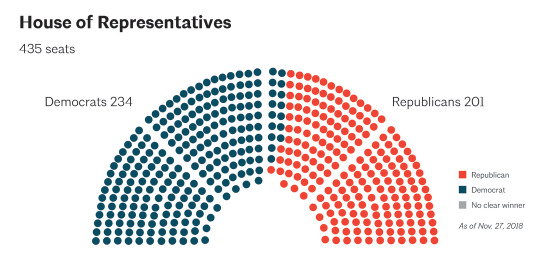
As a check on the regional, popular, and rapidly changing politics of the House, the Senate has several distinct powers. For example, the “advice and consent” powers are a sole Senate privilege. The House, however, has the exclusive power to initiate bills for raising revenue, to impeach officials, and to choose the president if a presidential candidate fails to get a majority of the Electoral College votes. The Senate and House are further differentiated by term lengths and the number of districts represented: the Senate has longer terms of six years, fewer members , and larger constituencies per member. The Senate is referred to as the “upper” house, and the House of Representatives as the “lower” house.
United States House Of Representatives Seats By State
verified
Our editors will review what youve submitted and determine whether to revise the article.
The U.S. Congress consists of two houses, the House of Representatives and the Senate. Each state elects two senators, while seats in the House of Representatives are apportioned by state according to population, with each state receiving a minimum of one representative. After each decennial census, the House of Representatives used to increase in size, but in the 1910s overall membership was capped at 435 . Now, after each census, legislative seats are reapportioned, with some states increasing their number of representatives while other states may lose seats.
The number of representatives in the U.S. House of Representatives by state is provided in the table.
Gop Members Who Voted Against Giving Visas To Afghan Interpreters Suddenly Have A Lot To Say About The Us Withdrawal
Find your bookmarks in your Independent Premium section, under my profile
Republican lawmakers who voted against granting visas to 8,000 Afghans who supported the United States war effort against the Taliban are facing renewed criticism.
Last month, the House of Representatives gave near-unanimous support to allow the interpreters and contractors who worked with the US military be allowed to relocate under the Special Immigrant Visa programme.
The resolution, introduced by Democratic Congressman Jason Crow, passed by 407 votes to 16.
Just a reminder that on July 22, 2021, these 16 Members of Congress, all Republican, voted AGAINST evacuating our Afghan interpreters and their families.
Ron Filipkowski August 16, 2021
Those who voted against were all Republicans, and included far-right members Lauren Boebert and Marjorie Taylor Greene.
The Problem With Existing Districts
Although legislators should reflect the voters of their state, they often do not. In Maryland, for example, Republicans received 37 percent of the votes for the U.S. House of Representatives but won only 13 percent of the congressional seats. And in North Carolina, Democrats received 48 percent of the vote for the U.S. House of Representatives but won only 26 percent of the congressional seats.
Figure 1 shows how well legislatures reflect the voting patterns of the population for each state and at each level of governmentstate House, state Senate, and U.S. House of Representatives. The percentage displayed for each state is the degree to which districts disproportionately favor 1 of the 2 major political parties, calculated by comparing the total percentage of votes cast for Democratic and Republican candidates to the total percentage of elections won by Democratic and Republican candidates, and excluding both votes and wins for nonmajor-party candidates. Biases in favor of Democrats are highlighted in blue, and biases in favor of Republicans are highlighted in red. The data reveal substantial biases in favor of each party. Moreover, it shows that biased districts are widespreadabout two-thirds of all state House, state Senate, and U.S. House delegations are biased in favor of one party or the other by a rate of at least 5 percent.
Trump Pick Wins Us House Special Republican Primary Election In Ohio
US Midterms 2018: Democrats take the House and Republicans keep the Senate | #GME
Vehicles are parked outside the U.S. Capitol building the morning the Senate returned to session in Washington, DC, U.S., July 31, 2021. REUTERS/Elizabeth Frantz/File Photo
WASHINGTON, Aug 3 – Mike Carey, a coal lobbyist endorsed by former President Donald Trump, won a crowded primary contest on Tuesday for the Republican nomination to a seat in the U.S. House of Representatives from Ohio’s 15th district.
With 96.5% of precincts reporting, Carey was ahead of his closest contender, state representative Jeff LaRe, by 37% to 13.3%, results from the Ohio secretary of state’s office showed.
The outcome in Ohio’s traditionally Republican 15th District south of Columbus was being closely watched as a measure of Trump’s clout in the Republican Party, coming just a week after a Trump-backed candidate for the U.S. Congress suffered a surprise loss to a fellow Republican in north Texas.
“Tonight, Republicans across Ohio’s 15th Congressional District sent a clear message to the nation that President Donald J. Trump is, without a doubt, the leader of our party,” Carey declared in a statement after his victory.
Trump also issued a statement thanking Ohio voters and praising the “Great Republican win for Mike Carey. Big numbers!”
“We have looked across the promised land, but … we will not cross the river,” Turner told supporters at an election night watch party outside Cleveland.
Democrats currently have a narrow 220-212 majority in the U.S. House of Representatives.
Why The Number Of House Members Hasn’t Changed Since 1913
There are still 435 members of the House of Representatives a century later because of the Permanent Apportionment Act of 1929, which set that number in stone.
The Permanent Apportionment Act of 1929 was the result of a battle between rural and urban areas of the United States following the 1920 Census. The formula for distributing seats in the House based on population favored “urbanized states” and penalized smaller rural states at the time, and Congress could not agree on a reapportionment plan.
“After the 1910 census, when the House grew from 391 members to 433 , the growth stopped. Thats because the 1920 census indicated that the majority of Americans were concentrating in cities, and nativists, worried about of the power of ‘foreigners,’ blocked efforts to give them more representatives,” wrote Dalton Conley, a professor of sociology, medicine and public policy at New York University, and Jacqueline Stevens, a professor of political science at Northwestern University.
So, instead, Congress passed the Permanent Apportionment Act of 1929 and sealed the number of House members at the level established after the 1910 census, 435.
How The Current Gerrymandering Landscape Was Formed
Gerrymandering has been a reality in the United States for a long time; the term dates back to 1812, and the practice itself predates the Constitution. The fight against gerrymandering, therefore, has been shaped in part by a justifiable pessimism about the prospects of getting self-interested politicians to fix the system through legislation. Rather, advocates for reform have often been focused on curbing the most egregious abuses of the redistricting processgerrymanders aimed at disenfranchising entire communities on the basis of raceand extreme, intentional gerrymanders by partisan incumbents. These fights have most often taken place in the courts, where incumbent politicians have less sway.
The long fight against gerrymanders that exclude communities of color
The United States has a long history of depriving nonwhite citizens of their political rights. Only as the result of a long and hard-fought struggle have African Americans been able to secure representation in Congress and in their state and local governments. Although African Americans and other underrepresented communities have made substantial gains, there is still a long way to go for communities of color to have political power commensurate with their numbers.
The court-focused fight against partisan gerrymandering
The challenge of educating the public about gerrymandering
Results Summary And Analysis
The Democratic Party won control of the House of Representatives in the 2018 midterm elections. The Democrats gained a net total of 41 seats from the total number of seats they had won in the 2016 elections. This was their largest gain of House seats in an election since the 1974 elections, when the Democrats gained 49 House seats. Democrats won the popular vote by more than 9.7Â million votes or 8.6%, the largest midterm margin for any party and the largest margin on record for a minority party.
According to the Associated Press statistical analysis, gerrymandering cost the Democrats an additional sixteen House seats from Republicans.
Voter turnout in this election was 50.3%, the highest turnout in a U.S. midterm election since 1914.
Note that the results summary does not include blank and over/under votes which were included in the official results or votes cast in the voided election in North Carolinas 9th congressional district.
What Was The Outlook Prior To The Election
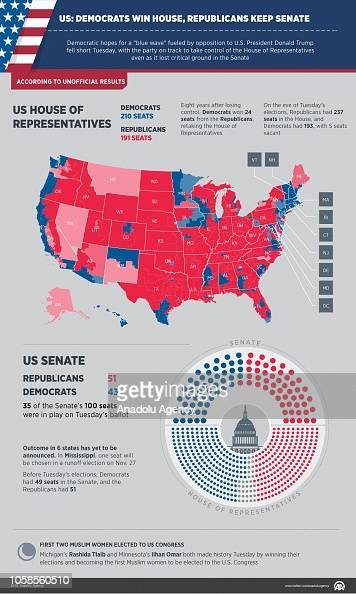
Republicans needed to get to 218 seats to win back the majority they lost in 2018. The National Republican Congressional Committee, the campaign arm of House Republicans, in early 2019 identified dozens of Democratic-held districts to target. They included 30 Democrats who were elected or re-elected in 2018 in districts that voted for President Donald Trump in 2016. All but one Dave Loebsack of Iowa sought re-election. Most were first-term members who defeated or succeeded Republicans in the 2018 election. Republicans won some of these Trump Democrat districts but needed to unseat most to win back control of the House.
The Democratic Congressional Campaign Committee, the campaign arm of House Democrats, identified more than 40 Frontline Democrats it expected to have very competitive re-election campaigns. Many of these members represented suburban districts that have diversified their populations in recent years. In most of these districts, Democrats were running for re-election for the first time. The Frontline Democrats amassed large campaign funds.
Democrats also identified more than three dozen Republican-held districts they intended to target, including seven in Texas.
Democrats also made a play for the suburban Texas districts of retiring Republican Reps. Pete Olson of the 22nd District and Kenny Marchant of the 24th District. They lost the 22nd District, but the 24th is currently too close to call, with Republican Beth Van Duyne leading.
Arguments For Expanding The Number Of House Members
Advocates for increasing the number of seats in the House say such a move would increase the quality of representation by reducing the number of constituents each lawmaker represents. Each House member now represents about 710,000 people.
The group ThirtyThousand.org argues that the framers of the Constitution and the Bill of Rights never intended for the population of each congressional district to exceed 50,000 or 60,000. The principle of proportionally equitable representation has been abandoned, the group argues.
Another argument for increasing the size of the House is that is would diminish the influence of lobbyists. That line of reasoning assumes that lawmakers would be more closely connected to their constituents and therefore less likely to listen to special interests.
Were Also On Social Media
GovTrack.us is an independent website tracking the status of legislation in the United States Congress and helping you participate in government. Now were on Instagram too!
Follow on Instagram for new 60-second summary videos of legislation in Congress.
Follow on Twitter for posts about legislative activity and other information were tracking, and some commentary.
And please consider supporting our work by becoming a monthly backer on Patreon or leaving a tip.
Incumbents Defeated In Primary Elections
The following table lists incumbents defeated in 2020 House primary elections or conventions.
Incumbents defeated in primaries
See also: Incumbents defeated in 2018 congressional elections
In the 2018 midterm elections, 378 U.S. House incumbents ran for re-election. This was the lowest number of U.S. House incumbents seeking re-election since 1992.
Thirty-four incumbentsâ9 percentâlost their re-election bids. That included two Democrats and 32 Republicans. This was the highest percentage of incumbents defeated since 2012, when 10.2 percent were not re-elected.
The following data for congressional re-election rates from 2000 to 2016 was reported in Vital Statistics, a joint research project of the Brookings Institution and the American Enterprise Institute. Find the original datasets and methodology here. Data for the 2018 election came from Ballotpedia.
Defeated U.S. House incumbents by party, 2000-2018 Year
97.8
Important Dates And Deadlines
Chuck: House GOP Giving Up Time Shows How Much They ‘Don’t Have To Say’ On Impeachment | MTP Daily
The table below lists filing deadlines and primary dates in each state for Democratic Party and Republican Party candidates for congressional and state-level office.
Primary dates and filing deadlines, 2020 State
The embedded spreadsheet below details filing requirements for major-party and unaffiliated congressional candidates in 2020.
United States House Of Representatives
Jump to navigationJump to search117th United States CongressList of United States state legislatures
United States House of Representatives Flag of the U.S. House of Representatives Type Plurality voting in 46 statesVaries in 4 states
The United States House of Representatives is the lower house of the United States Congress, with the Senate being the upper house. Together they compose the national bicameral legislature of the United States.
The House’s composition is established by Article One of the United States Constitution. The House is composed of representatives who sit in congressional districts allocated to each state on a basis of population as measured by the U.S. Census, with each district having one representative, provided that each state is entitled to at least one. Since its inception in 1789, all representatives have been directly elected. The number of voting representatives is fixed by law at 435. If enacted, the DC Admission Act would permanently increase the number of representatives to 436. In addition, there are currently six non-voting members, bringing the total membership of the House of Representatives to 441 or fewer with vacancies. As of the 2010 Census, the largest delegation is that of California, with 53 representatives. Seven states have only one representative: Alaska, Delaware, Montana, North Dakota, South Dakota, Vermont, and Wyoming.
How Many Senators Are Chosen
The Senate of the United States shall be composed of two Senators from each State, elected by the people thereof, for six years; and each Senator shall have one vote. The electors in each State shall have the qualifications requisite for electors of the most numerous branch of the State legislatures.
How A Record Number Of Republican Women Got Elected To Congress
Conston contends that Republicans had better messengers for a more persuadable message on the economy and cultural issues for undecided swing voters. CLF spent $140 million on ads this year that sounded similar to the message used in an ad against freshman Rep. Joe Cunningham, D-S.C., that said he was “backed by lobbyists and radicals who want to defund the police. And he backs Biden. That means higher taxes.” Cunningham lost.
The coronavirus pandemic also made campaigning itself a cultural and tactical issue in competitive races. Many Republicans continued to hold in-person events, rarely wore masks and ran traditional door-knocking campaigns to get out the vote, all things Democrats more often avoided over concerns about public safety.
Republican Beth Van Duyne won an open seat in the Dallas-Fort Worth suburbs. She credited her ground game with her narrow victory. She told NPR she never saw her Democratic opponent on the campaign trail. “Her point was, she was concerned about COVID. You know what? That’s fine. But in an elected position role, a public servant role, we do not have the luxury of calling it in.” Van Duyne’s was one of six Republican-held suburban Texas seats that Democrats made a play for in 2020; they lost in all of them.
Govtrackus Is Taking A New Focus On Civic Education
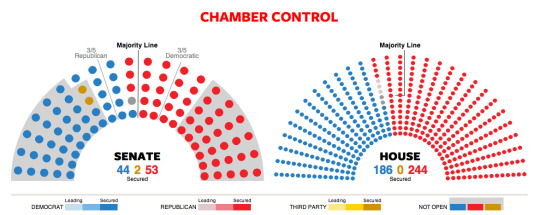
Help us develop the tools to bring real-time legislative data into the classroom.
If youve visited a bill page on GovTrack.us recently, you may have noticed a new study guide tab located just below the bill title. This is part of a new project to develop better tools for bringing real-time legislative data into the classroom. We hope to enable educators to build lesson plans centered around any bill or vote in Congress, even those as recent as yesterday.
Were looking for feedback from educators about how GovTrack can be used and improved for your classroom. If you teach United States government and would like to speak with us about bringing legislative data into your classroom, please reach out!
Arguments Against Expanding The Number Of House Members
Advocates for shrinking the size of the House of Representatives often argue that the quality of legislating improves because House members would get to know each other on a more personal level. They also cite the cost of paying for salaries, benefits, and travel for not only the lawmakers but their staffs.
Republicans Can Win The Next Elections Through Gerrymandering Alone
Even if voting patterns remain the same, Republicans could still win more seats in Congress through redistricting
In Washington, the real insiders know that the true outrages are whats perfectly legal and that its simply a gaffe when someone accidentally blurts out something honest.
And so it barely made a ripple last week when a Texas congressman said aloud whats supposed to be kept to a backroom whisper: Republicans intend to retake the US House of Representatives in 2022 through gerrymandering.
We have redistricting coming up and the Republicans control most of that process in most of the states around the country, Representative Ronny Jackson told a conference of religious conservatives. That alone should get us the majority back.
Hes right. Republicans wont have to win more votes next year to claim the US House.
In fact, everyone could vote the exact same way for Congress next year as they did in 2020 when Democratic candidates nationwide won more than 4.7m votes than Republicans and narrowly held the chamber but under the new maps that will be in place, the Republican party would take control.
If Republicans aggressively maximize every advantage and crash through any of the usual guardrails and they have given every indication that they will theres little Democrats can do. And after a 2019 US supreme court decision declared partisan gerrymandering a non-justiciable political issue, the federal courts will be powerless as well.
Will Trump Be Impeached
As Democrats hold a majority in the House, the vote is likely to pass.
“We have been asked to turn a blind eye to the criminality, corruption and blatant disregard to the rule of law by the tyrant president we have in the White House,” Democratic Representative Ilhan Omar said in the House debate.
“We as a nation can no longer look away.”
Did Trump’s words at rally incite the riot?
At least nine Republicans have voted in favour impeachment, but the majority remain loyal to the president.
“Instead of moving forward as a unifying force, the majority in the House is choosing to divide us further… Let us look forward, not backward. Let us come together, not apart,” Republican Tom Cole told the House.
He was one of 139 Republicans who last week voted against accepting the result of the 2020 election and Mr Trump’s defeat.
Once it has passed in the House of Representatives, the impeachment article will then head for the Senate, where a trial will be held to determine the president’s guilt.
A two-thirds majority would be needed there to convict Mr Trump, meaning at least 17 Republicans would have to vote for conviction. As many as 20 Senate Republicans are open to convicting the president, the New York Times reports.
Senate Majority Leader Mitch McConnell said he had not yet decided whether or not he would vote in favour of impeachment.
The Senate will not reconvene this week and probably not until 19 January, according to Mr McConnell’s spokesman.
source https://www.patriotsnet.com/how-many-republicans-are-in-the-us-house/
0 notes
Link
Opinion: What it would take for the GOP to dump Gaetz Gaetz, a loyal foot soldier for former President Donald Trump and a Fox News darling, is engulfed in a scandal. The Justice Department is investigating whether Gaetz engaged in a relationship with a 17-year-old girl, whether he was involved with other young women, and whether he broke federal sex trafficking and prostitution laws, according to people briefed on the matter. Investigators have also examined whether federal campaign money was involved in paying for travel and expenses for the women, one source said. Gaetz said “no part of the allegations against me are true.” He denied that he paid any woman for sex, insisting that the 17-year-old girl does not exist, and that he was the victim of an organized criminal extortion plot, which the FBI is investigating separately. Sources also told CNN that Gaetz bragged about his sexual escapades on Capitol Hill and showed other lawmakers nude photos and videos of women he said he slept with. (There is no indication these pictures are connected to the Justice Department investigation.) On Friday, Gaetz’s office issued a statement announcing he and his communications director had parted ways, without giving an explanation as to why. This scandal has developed at a breakneck speed. But will his career come to an end? And will the GOP take a hit as a result? The answer is still unclear. To be sure, there is a long history of politicians who have had to face up to their own career-ending misconduct, with the fallout often going on to damage their parties. Arkansas Democratic Rep. Wilbur Mills initially survived a scandal in October 1974 when he was found in a car with Annabel Battistella, a stripper who went by the stage name Fanne Fox and was billed as the “Argentine Firecracker.” Mills went on to win reelection, but Democrats pressured him into resigning after he appeared drunk on stage with Battistella at a club in Boston. His downfall helped young Democrats push through reforms that weakened the standing of senior southern Democratic committee chairs who had long ruled the roost. In 1976, Ohio Democrat Wayne Hays stepped down after the Washington Post broke a story about his mistress, a 27-year-old clerk named Elizabeth Ray who received a taxpayer-funded salary even though she admitted she couldn’t type, file or function as a receptionist. The career of Maryland Republican Bob Bauman, a champion of the religious right and a founder of the American Conservative Union, went down in flames in 1980 when he was accused of soliciting sex from a 16-year-old boy (those charges were later dropped after he completed six-months of counseling for alcoholism). In 1989, Republican Congressman Donald “Buz” Lukens of Ohio was convicted of having sex with a 16-year-old girl, which torpedoed his career and paved the way for John Boehner to win his seat in the 1990 election. In 2006, Florida Republican Mark Foley issued an apology and abruptly resigned after news reports detailed explicit messages he sent to teenaged male pages. His downfall helped Democrats regain control of the House in 2006. Yet there is also a long history of politicians who survived their scandals, sometimes with little more than an apology. In 1978, for instance, New York Democrat Fred Richmond was able to save his career despite having been arrested for soliciting sex from a 16-year-old boy. Rather than denying the events, he said he was sorry, admitted to a misdemeanor morals charge — which was later dropped — and won reelection. (His career later fell apart when he became embroiled in a financial scandal.) Though the House censured Democratic Massachusetts Rep. Gerry Studds in 1983 for his relationship with a 17-year-old House page, he remained in office until 1997. In 1993, police caught California Republican Ken Calvert in a car with a prostitute. (Calvert apologized for “inappropriate” behavior and insisted that he didn’t know the woman was for hire.) He won reelection and remains a member of Congress to this day. The allegations against Gaetz, who is so far refusing to resign, raise several red flags for his political future. Politicians accused of illegal activity, of course, have always faced crises of credibility — not to mention the possibility of prosecution, conviction and jail time. Meanwhile, the #MeToo movement has highlighted in more recent years the pernicious effects of sexual harassment and misconduct, along with abuses of power in the workplace. House Speaker Nancy Pelosi suggested the Ethics Committee launch an investigation into Gaetz and said if the allegations were true, “being removed from the Judiciary Committee is the least that could be done.” And while Republican House Minority Leader Kevin McCarthy said there were “serious implications” and that Gaetz would be stripped of his committee positions if the allegations were found to be true, he seemed to accept the Florida congressman’s word for the time being. “Right now Matt Gaetz says it is not true and we don’t have any information,” McCarthy said. “Let’s get all the information.” Gaetz’s biggest firewall, however, may be the Republican Party itself. The GOP has shown that there is considerable leeway allowed for poorly behaved men who are important to the party. The loyalty and support Republicans showed to former President Donald Trump — from the “Access Hollywood” tapes to the numerous allegations of sexual assault and misconduct levied against him —- made that clear. While the House is currently in recess, there has been relative silence from the GOP about Gaetz — other than fellow Republicans Marjorie Taylor Greene and Jim Jordan, who have publicly proclaimed their support for him. Gaetz also has Fox News, as well as an entire ecosystem of conservative media that may still offer him support. Despite Gaetz’s odd interview with Tucker Carlson this week, during which he addressed the claims and denied their veracity, Fox News has not covered the scandal extensively on air. But it isn’t hard to imagine that coverage of the Gaetz story could veer into conspiracy theories offered on his behalf, especially given the congressman’s claims that the allegations are part of an extortion plot. The Gaetz scandal will be another test to see how far Republicans are willing to go to protect their own. Over the past four-and-a-half years, we have repeatedly witnessed how the immense power of partisanship within the GOP overwhelms its moral concerns — despite the party’s widespread support among evangelical Christians. As long as Gaetz is considered valuable to the party — and a major player among Trump supporters — it is a safe bet that the modern GOP will stand by his side until the bitter end. After Trump, it’s clear the Republican Party seems willing to defend just about anyone in the name of power. Gaetz’s political future rests not on the morality of his actions, but how much power he can bring to the party. If the scandal begins to eclipse his value, it’s at that point the Republican Party will escort Gaetz to the door. Source link Orbem News #dump #Gaetz #GOP #opinion #Opinion:WhatitwouldtakefortheGOPtodumpGaetz-CNN #opinions
0 notes
Text
Opinion: What it would take for the GOP to dump Gaetz
New Post has been published on https://appradab.com/opinion-what-it-would-take-for-the-gop-to-dump-gaetz/
Opinion: What it would take for the GOP to dump Gaetz
Gaetz, a loyal foot soldier for former President Donald Trump and a Fox News darling, is engulfed in a scandal. The Justice Department is investigating whether Gaetz engaged in a relationship with a 17-year-old girl, whether he was involved with other young women, and whether he broke federal sex trafficking and prostitution laws, according to people briefed on the matter.
Investigators have also examined whether federal campaign money was involved in paying for travel and expenses for the women, one source said. Gaetz said “no part of the allegations against me are true.” He denied that he paid any woman for sex, insisting that the 17-year-old girl does not exist, and that he was the victim of an organized criminal extortion plot, which the FBI is investigating separately.
Sources also told Appradab that Gaetz bragged about his sexual escapades on Capitol Hill and showed other lawmakers nude photos and videos of women he said he slept with. (There is no indication these pictures are connected to the Justice Department investigation.)
On Friday, Gaetz’s office issued a statement announcing he and his communications director had parted ways, without giving an explanation as to why.
This scandal has developed at a breakneck speed. But will his career come to an end? And will the GOP take a hit as a result?
The answer is still unclear. To be sure, there is a long history of politicians who have had to face up to their own career-ending misconduct, with the fallout often going on to damage their parties. Arkansas Democratic Rep. Wilbur Mills initially survived a scandal in October 1974 when he was found in a car with Annabel Battistella, a stripper who went by the stage name Fanne Fox and was billed as the “Argentine Firecracker.” Mills went on to win reelection, but Democrats pressured him into resigning after he appeared drunk on stage with Battistella at a club in Boston. His downfall helped young Democrats push through reforms that weakened the standing of senior southern Democratic committee chairs who had long ruled the roost.
In 1976, Ohio Democrat Wayne Hays stepped down after the Washington Post broke a story about his mistress, a 27-year-old clerk named Elizabeth Ray who received a taxpayer-funded salary even though she admitted she couldn’t type, file or function as a receptionist. The career of Maryland Republican Bob Bauman, a champion of the religious right and a founder of the American Conservative Union, went down in flames in 1980 when he was accused of soliciting sex from a 16-year-old boy (those charges were later dropped after he completed six-months of counseling for alcoholism).
In 1989, Republican Congressman Donald “Buz” Lukens of Ohio was convicted of having sex with a 16-year-old girl, which torpedoed his career and paved the way for John Boehner to win his seat in the 1990 election. In 2006, Florida Republican Mark Foley issued an apology and abruptly resigned after news reports detailed explicit messages he sent to teenaged male pages. His downfall helped Democrats regain control of the House in 2006.
Yet there is also a long history of politicians who survived their scandals, sometimes with little more than an apology. In 1978, for instance, New York Democrat Fred Richmond was able to save his career despite having been arrested for soliciting sex from a 16-year-old boy. Rather than denying the events, he said he was sorry, admitted to a misdemeanor morals charge — which was later dropped — and won reelection. (His career later fell apart when he became embroiled in a financial scandal.)
Though the House censured Democratic Massachusetts Rep. Gerry Studds in 1983 for his relationship with a 17-year-old House page, he remained in office until 1997. In 1993, police caught California Republican Ken Calvert in a car with a prostitute. (Calvert apologized for “inappropriate” behavior and insisted that he didn’t know the woman was for hire.) He won reelection and remains a member of Congress to this day.
The allegations against Gaetz, who is so far refusing to resign, raise several red flags for his political future. Politicians accused of illegal activity, of course, have always faced crises of credibility — not to mention the possibility of prosecution, conviction and jail time. Meanwhile, the #MeToo movement has highlighted in more recent years the pernicious effects of sexual harassment and misconduct, along with abuses of power in the workplace.
House Speaker Nancy Pelosi suggested the Ethics Committee launch an investigation into Gaetz and said if the allegations were true, “being removed from the Judiciary Committee is the least that could be done.” And while Republican House Minority Leader Kevin McCarthy said there were “serious implications” and that Gaetz would be stripped of his committee positions if the allegations were found to be true, he seemed to accept the Florida congressman’s word for the time being. “Right now Matt Gaetz says it is not true and we don’t have any information,” McCarthy said. “Let’s get all the information.”
Gaetz’s biggest firewall, however, may be the Republican Party itself. The GOP has shown that there is considerable leeway allowed for poorly behaved men who are important to the party. The loyalty and support Republicans showed to former President Donald Trump — from the “Access Hollywood” tapes to the numerous allegations of sexual assault and misconduct levied against him —- made that clear.
While the House is currently in recess, there has been relative silence from the GOP about Gaetz — other than fellow Republicans Marjorie Taylor Greene and Jim Jordan, who have publicly proclaimed their support for him.
Gaetz also has Fox News, as well as an entire ecosystem of conservative media that may still offer him support. Despite Gaetz’s odd interview with Tucker Carlson this week, during which he addressed the claims and denied their veracity, Fox News has not covered the scandal extensively on air. But it isn’t hard to imagine that coverage of the Gaetz story could veer into conspiracy theories offered on his behalf, especially given the congressman’s claims that the allegations are part of an extortion plot.
The Gaetz scandal will be another test to see how far Republicans are willing to go to protect their own. Over the past four-and-a-half years, we have repeatedly witnessed how the immense power of partisanship within the GOP overwhelms its moral concerns — despite the party’s widespread support among evangelical Christians. As long as Gaetz is considered valuable to the party — and a major player among Trump supporters — it is a safe bet that the modern GOP will stand by his side until the bitter end.
After Trump, it’s clear the Republican Party seems willing to defend just about anyone in the name of power. Gaetz’s political future rests not on the morality of his actions, but how much power he can bring to the party. If the scandal begins to eclipse his value, it’s at that point the Republican Party will escort Gaetz to the door.
0 notes
Text
youlike124
Marjorie Taylor Greene
Marjorie Taylor Greene (born May 27, 1974) is an American politician, businesswoman, andfar-right[2] promoterof conspiracy theories[3] <!--td {border: 1px solid #ccc;}br {mso-data-placement:same-cell;}-->เว็บพนันออนไลน์ ฟรีเครดิต
0 notes
Text
2024

If we take into account every election since 2008, there would have been 32 possible outcomes for the 2024 presidential election. Sixteen of them saw the election or re-election of the 46th president, fifteen of them the 47th, and two the 48th. This assumes that every president runs for re-election when eligible, but only for consecutive terms It further assumes that no presidents die in office or resign, which haven’t happened since 1963 and 1974 respectively.
Because we know the outcomes of the previous elections, it appears that the two possible scenarios for 2024 are that Joe Biden is re-elected the 46th president, or a new Republican challenger is elected the 47th. I have a strong feeling that 2024 isn’t going to be a regular election though.

I picture four possible outcomes for 2024, and 9 for 2028.
First, Joe Biden is re-elected; I consider this unlikely. Biden will be 82 in 2024, and there was an unspoken promise that he planned to only serve one term because of this.
Second, Kamala Harris is elected president instead; this is much more likely. If Biden doesn’t run, the nomination is all but guaranteed to go to her. No Democrat with a future would try to challenge her in the primaries, that would shoot the entire party in the foot right out the gate.
Third, a Republican challenger defeats either Biden or Harris. This is the second most likely scenario for me. Unseating an incumbent is traditionally very difficult, Trump just happened to be chronically unpopular (he never had 50% approval, and lost the popular vote twice), so if Biden runs he’ll probably win, but if Harris runs I give her 50/50 depending on who the Republicans pick. There are a lot of contenders; Josh Hawley, Ted Cruz, Matt Gaetz, Ron DeSantis, Rick Scott, but if Harris gets the Democratic nomination then I would bet the Republican would nominate a woman to go against her; Nikki Haley, Marjorie Taylor Green, Ivanka Trump, Lauren Boebert. That would guarantee the country elects the first woman president, and make it an ideological thing; everyone assumes the first woman president will be a Democrat (every believed it would be Hillary Clinton since the year 2000), but the Republicans will try to claim that milestone themselves and then push a far-right agenda under the guise of “real feminism,” where they say that real feminists are conservative, they don’t want abortions, they don’t want body autonomy, they don’t support trans women. One of the primary opponents to the Equal Rights Amendment was a woman named Phyllis Schalfly, so any Republican woman running for office would gladly strip people’s rights away
Fourth, Donald Trump is re-elected to a non-consecutive second term as the 47th president. I think he’ll make us think he wants to run again, but I don’t think his heart will be in it; he just wants to stay in the limelight and pocket millions of dollars in political donations. He’ll announce his candidacy and file with the FEC shortly after his acquittal in his senate impeachment trial, but without his twitter account he’ll have trouble staying relevant for 4 years, especially when the media is no longer obligated to follow his every move. Don’t get me wrong, they’ll still report on him, he’s their bread and butter, but he’s a private citizen, so they’ll be more likely to focus on the current administration. He’ll have a ton of publicity stunts between now and 2024 to try and stay in the spotlight, but without any executive power nothing he does will be substantive enough to remain a top story for very long. He won’t start his own news network, he’ll probably just become a regular contributor to the existing conservative propaganda machines like Fox, Newsmax and OAN. He’ll drop out of the race early and play kingmaker, telling his base to vote for whoever he endorses; I picture him turning the Republican primary season into a reality game show with himself as the judge, whittling down a pool of candidates like he’s back on Celebrity Apprentice, with the nomination going to his handpicked finalist. The fleeting moderate wing of the party might try to ignore him, but the core conservative wing and the rising fascist wing will play along with whatever he chooses to do.
For the first three outcomes, I predicted fairly tame 2028 campaigns; it is almost certainly going to be Harris or a Republican challenger, but if Donald Trump wins a second term, there is a slim not non-zero possibility that he stays in office for a third. Just look at what he tried to do between November 7 and January 6; now picture that he and his lawyers learn from experience and try to do it again. Regardless of who the Republicans choose in 2024, you know there’s going to be a lot of collusion with Secretaries of State, especially in swing states, to try and undermine the election before it begins. This wasn’t an anomaly, this is gonna happen again, I guarantee it. They’ve proven themselves willing to cheat to win, so why on Earth would we assume they’d ever play fair again? Watch as Georgia changes voting laws to strip rights away from black people, watch as the secretary of state interferes in his own re-election campaign to stay in power, watch as states like Ohio and Pennsylvania and Michigan and Wisconsin and Florida create even worse gerrymandered districts, watch as Trump-appointed judges rule against Biden/Harris.
I can see the writing on the wall, and it spells disaster for our democracy.
#politics#political#political rant#2024#2024 election#2024 presidential election#2028#harris 2024#biden 2024#democrats#republicans#election#elections#the future#prediction#election prediction
0 notes
Text
As Trump Thunders About Last Election, Republicans Worry About the Next One
As Trump Thunders About Last Election, Republicans Worry About the Next One
Mr. Reed said that the former president’s comments about Republicans not voting “should warrant a sanction from the Republican National Committee.” He warned, “It will impact the 2022 midterms severely.”
The tension between Mr. McConnell and Mr. Trump has escalated lately, as the former president has ratcheted up his attacks on the minority leader, accusing Mr. McConnell of “folding” to Democrats…

View On WordPress
#Bannon#Stephen K#Comstock#Barbara J#Greene#Marjorie Taylor (1974- )#Midterm Elections (2022)#Presidential Election of 2020#Republican Party#Trump#Donald J#Virginia#Voter Fraud (Election Fraud)#Youngkin#Glenn A
1 note
·
View note
Text
TOAST OF THE TOWN aka THE ED SULLIVAN SHOW
“A Tribute to Lucy and Desi” (S3;E8) ~ October 3, 1954

Directed & Choreographed by John Wray
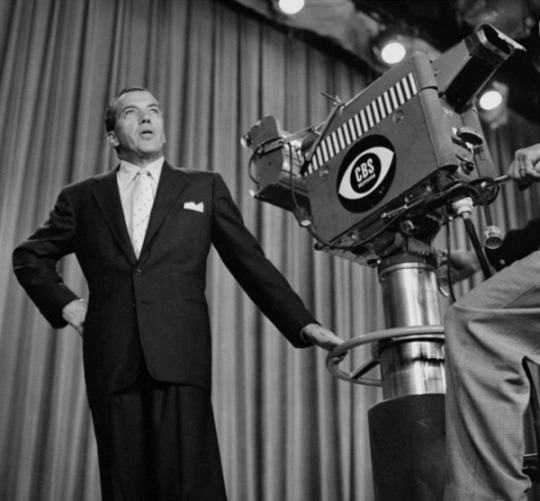
Ed Sullivan (Himself / Host) was a preeminent television variety show host who is best remembered for hosting his own show, at first titled “Toast of the Town” but later simply known as “The Ed Sullivan Show,” which became a staple of Sunday night viewing for millions of Americans from 1948 to 1971. As such, his name was often mentioned on “I Love Lucy” and Lucille Ball's subsequent sitcoms. He introduced America to such entertainers as Elvis Presley, The Beatles, and The Supremes. Sullivan entered icon status when he and his television show were worked into the plot of the Broadway musical Bye Bye Birdie in 1960. The musical includes the song "Hymn for a Sunday Evening" which has a chorus that repeats Sullivan's name in a choir-like harmony. Hope made an appearance in the 1964 film version. The theatre on Broadway in New York City where Sullivan did his weekly show was named after him in 1967. He died in 1974.

Lucille Ball (Herself / Lucy Ricardo) was born on August 6, 1911 in Jamestown, New York. She began her screen career in 1933 and was known in Hollywood as ‘Queen of the B’s’ due to her many appearances in ‘B’ movies. With Richard Denning, she starred in a radio program titled “My Favorite Husband” which eventually led to the creation of “I Love Lucy,” a television situation comedy in which she co-starred with her real-life husband, Latin bandleader Desi Arnaz. The program was phenomenally successful, allowing the couple to purchase what was once RKO Studios, re-naming it Desilu. When the show ended in 1960 (in an hour-long format known as “The Lucy-Desi Comedy Hour”) so did Lucy and Desi’s marriage. In 1962, hoping to keep Desilu financially solvent, Lucy returned to the sitcom format with “The Lucy Show,” which lasted six seasons. She followed that with a similar sitcom “Here’s Lucy” co-starring with her real-life children, Lucie and Desi Jr., as well as Gale Gordon, who had joined the cast of “The Lucy Show” during season two. Before her death in 1989, Lucy made one more attempt at a sitcom with “Life With Lucy,” also with Gordon, which was not a success and was canceled after just 13 episodes.

Desi Arnaz (Himself / Ricky Ricardo) was born in Cuba in 1917 and immigrated to America as a youngster. He was a musician who married Lucille Ball in 1940 after meeting her on the set of 1939’s Too Many Girls, which he had done on stage in New York. In order to keep him ‘off the road’ Ball convinced producers to cast him as her husband in a new television project based on her radio show “My Favorite Husband.” The network was convinced. In 1951, Arnaz and Ball began playing Lucy and Ricky Ricardo, roles they would be identified with for the rest of their lives. The couple had two children together, Lucie and Desi Jr. In 1960, Ball and Arnaz divorced. Desi became a producer, responsible for such hits as “The Mothers-in-Law” (1967-69). He re-married in 1963. Desi Aranz died in 1986, just a few years before Ball.
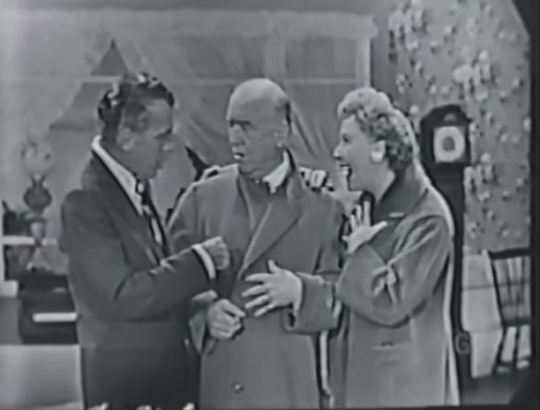
William Frawley (Himself / Fred Mertz) was already a Hollywood veteran when he was hired by Desi Arnaz to play Fred Mertz on “I Love Lucy.” After the series concluded he joined the cast of “My Three Sons” playing Bub Casey. He did an episode of “The Lucy Show” in October 1965 which was his final TV appearance before his death in March 1966.
Vivian Vance (Herself / Ethel Mertz) was born Vivian Roberta Jones in Cherryvale, Kansas in 1909, although her family quickly moved to Albuquerque, New Mexico where she was raised. She had extensive theatre experience, co-starring on Broadway with Ethel Merman in “Anything Goes.” She was acting in a play in Southern California when she was spotted by Desi Arnaz and hired to play Ethel Mertz, Lucy Ricardo’s neighbor and best friend. The pairing is credited with much of the success of “I Love Lucy.” Vance was convinced to join the cast of “The Lucy Show” in 1962, but stayed with the series only through season three, making occasional guest appearances afterwards. She made a total of six appearance on “Here’s Lucy.” She also joined Lucy for a TV special “Lucy Calls the President” in 1977. Vance died two years later.

Harry Chesney (Himself) was the vice-president of Philip Morris, the tobacco company that first sponsored “I Love Lucy” in 1951.
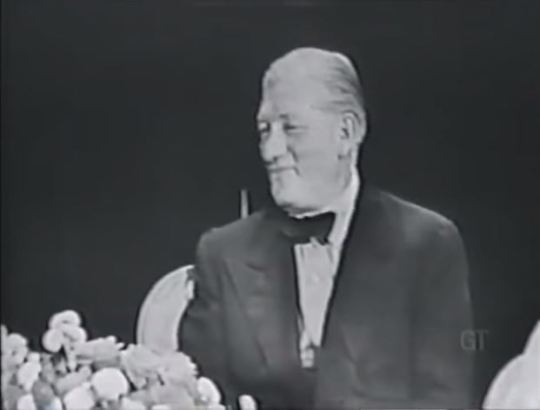
Howard Dietz (Himself) was a lyricist who wrote over 500 songs in his lifetime. In 1954 he was a vice-president at MGM where he is credited with developing the Leo the lion logo as well as their slogan “Ars Gratia Artis” (art for art's sake). The Long, Long Trailer was an MGM picture.

Don Dixon (Himself) was a correspondent for INS, the International News Service. He was held captive in Communist China for 18 months.

John Hodiak (Himself) was a busy actor at MGM who had co-starred with Lucille Ball in their 1946 film Two Smart People. He was also seen in the 1944 film Lifeboat with Tallulah Bankhead.

Tex O'Rourke (Himself) was a toastmaster famous for moderating his “Circus Saints and Sinners” tributes.

Dusty Rhodes (Himself) was a member of 1954 World Series Champion team the New York Giants. He would return to “The Ed Sullivan Show” in April 1955.
Robert Taylor (Archival Footage from Bataan) acted alongside Desi Arnaz in the 1943 film Bataan. He never appeared on “I Love Lucy,” but during the Ricardo's stay in Hollywood, Lucy Ricardo mentioned meeting him at a farmers market and getting his autograph on an orange.
Keenan Wynn (Archival Footage from The Long, Long Trailer)
Marjorie Main (Archival Footage from The Long, Long Trailer)
Johnny Roventini (Philip Morris Bellhop, uncredited)
Julia Meade (Voice of Mercury Commercial)

This show was aired on CBS on October 3, 1954. Sunday nights were known as “Ed Sullivan Show” nights in the same way that Lucy and Desi “owned” Monday nights throughout the 1950s. This show was done live in front of a studio audience at (what is now known as) the Ed Sullivan Theatre in New York City.

The next day “I Love Lucy” began its fourth season on the air with “The Business Manager” (ILL S4;E1) co-starring Charles Lane (above) as Mr. Hickox. Two weeks later the series celebrated its 100th��show.

The same night this show aired, “Father Knows Best” made its TV debut on CBS at 10pm. Prior to that the series had been aired on radio since 1949. On TV, it ran for one season and was canceled. The series was picked up by NBC, where it remained for three seasons. After a second cancellation in 1958, the series was picked up yet again, by CBS, where it aired until May 1960.

This was the second of Lucille Ball's dozen appearances on “The Ed Sullivan Show.” Ball and Arnaz had been on earlier in the year, after Ed Sullivan presented “I Love Lucy” with an Emmy Award in April 1954. Desi made eight appearances, the last being in 1960. This is the only time the full hour of Sullivan's show is devoted solely to Lucy and Desi.

“Toast of the Town” was not filmed in Hollywood, like “I Love Lucy.” It was broadcast live from New York and then kinescoped to the West Coast. Consequently, prints of this show are generally of poor quality.

During the run of “I Love Lucy,” Ed Sullivan and his show were mentioned several times:
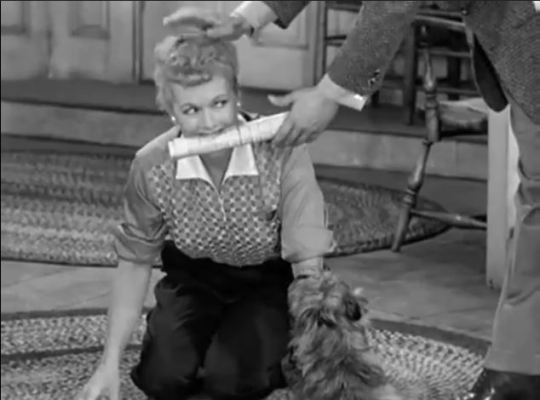
Lucy: (about Fred the dog) “He learned obedience, but he’s not ready for ‘The Ed Sullivan Show’.”
~ “The Ricardos Dedicate a Statue” (ILL S6;E27)
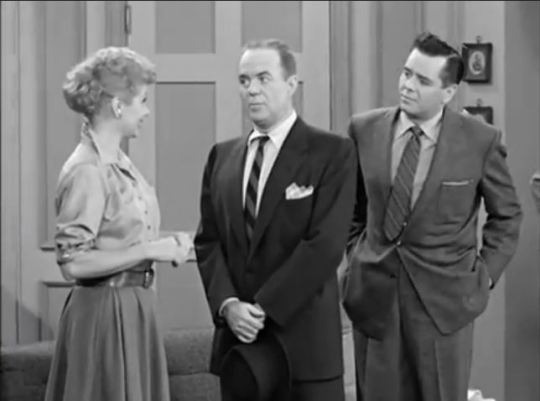
Johnny Clark: (to Ricky) “I think I've got you planted on ‘The Ed Sullivan Show’ for next month.”
[Celebrities would often be asked to stand-up and wave if they were spotted on “The Ed Sullivan Show.”] ~ “Face to Face” aka “The Ricardos Are Interviewed” (ILL S5;E7)

Lucy: (to a stoic Buckingham Palace Guard) “Wow, you make Ed Sullivan look like laughing boy.”
[Sullivan was known not to smile or laugh, something Lucy chides him for in the tribute.] ~ “Lucy Meets the Queen” (ILL S5;E15)
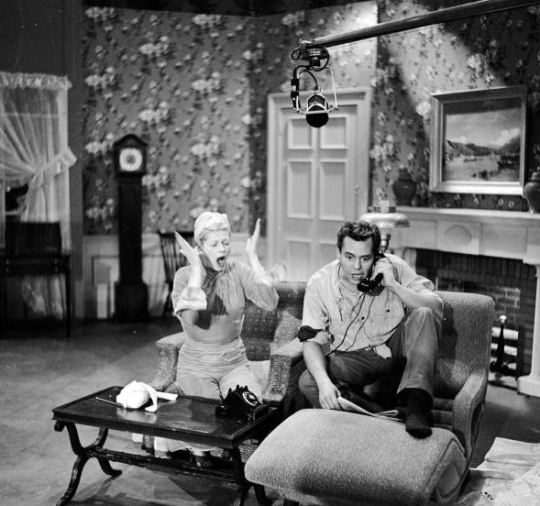
To kick off the hour, Lucy and Desi perform a sketch about their meeting with Ed Sullivan. Although the sketch feels like an episode of “I Love Lucy,” Lucy and Desi use their own names. It opens with Lucy knitting and Desi at home (in Beverly Hills), relaxing and reading the Sunday papers, which are spread out all over the room. Desi is looking for the “spor' session” [“sports section”].
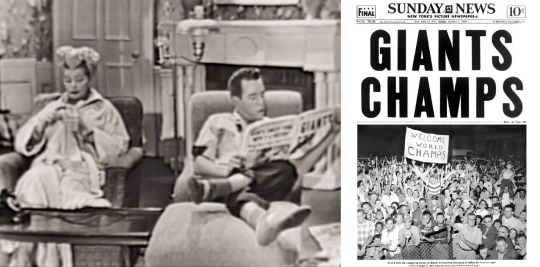
The newspaper Desi holds is the Sunday, October 3, 1954, edition of the New York Daily news, with the back page headline “GIANTS CHAMPS”! The previous day, the New York Giants triumphed over the Cleveland Indians in the 1954 World Series. Interestingly, this was not good news to Lucy's good friend Bob Hope, who was part-owner of the Indians.

Two years later, October 8, 1956, Lucy and Desi guest-starred on “The Bob Hope Chevy Show” which for the evening was broadcast in Ed Sullivan's time slot, a fact Hope acknowledged in his monologue. Like this Ed Sullivan show, it was the day after a world series victory and the MVP was invited to appear on the show. For this “Toast of the Town” that player was Dusty Rhodes of the New York Giants. In 1956 it would be Don Larsen of the New York Yankees.

When Lucy shows off what she's been knitting, Desi immediately jumps to conclusions: “Lucy! Again? We've already done that bit!” Desi is referring to Lucy Ricardo having a baby on “I Love Lucy.” Prior to that, in 1951's “Drafted” (ILL S1;E11, above), Ricky and Fred mistake the girls knitting them sweaters for a clue that they are expecting.

Lucy tells him to relax, that she's knitting it for Eve Arden's new baby. Arden, a friend of Ball's from her B-movie days, was currently starring in TV's “Our Miss Brooks” filmed at Desilu. On September 17, 1954, she gave birth to what would be her only biological child, Douglas Brooks West.
After arguing who should answer the telephone, Desi answers it, but can't quite figure out who it is on the other end.
Desi (to Lucy, covering the phone receiver): “I think it's somebody from a bakery. A guy called Solomon. Ed Solomon. He says he's selling toast in this part of the town.”
Lucy grabs the phone and it turns out to be Ed Sullivan who is coming right over, despite the fact that their house is a mess and they aren't properly dressed. Desi says they should let Ed see them as they really are, with no pretense.
Lucy: “The show is called 'Toast of the Town', not 'Crumbs of the Town'.”
She then implores Desi to put on his shoes, to which he replies, “What for? He knows I got feet.”
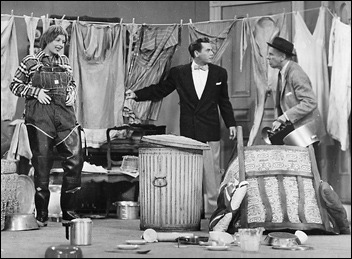
This is very similar to an exchange in “Men Are Messy” (ILL S1;E8) from 1951.
Lucy Ricardo: “Put your shoes on and pick up those papers. Company is coming.”
Ricky Ricardo: “It isn't company, it's Fred and Ethel.”
Lucy Ricardo: “Well, put your shoes on.”
Ricky Ricardo: “They know I have feet.”
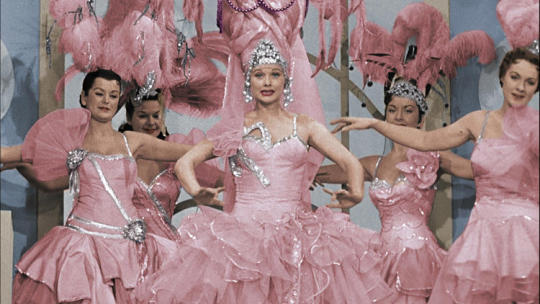
In the next scene, they are dressed to the nines, and Lucille makes her entrance to the strains of “A Pretty Girl Is Like A Melody” by Irving Berlin. In 1955's , “Lucy Gets Into Pictures” (ILL S4;E18) Lucy Ricardo gets a role as a showgirl, strutting down a staircase wearing a giant head-dress, while this song is playing.


Before Sullivan arrives, Lucy and Desi silently practice being acknowledged from the audience, just in case that is what Sullivan has in mind. This is visually similar to when Lucy and Ricky rehearse being surprised with a “Housewarming” (ILL S6;E23) party when they first move to Connecticut in 1957.
The phone rings again and Lucy talks to their agent Don Sharpe about the purpose of Sullivan's visit, while Desi hovers anxiously behind her:
Lucille (into the phone): “He is! He isn't? He isn't? He is! He isn't!” (she hangs up)
Desi: “Well, is he or isn't he?”
This is another gag taken directly from “I Love Lucy.” It is possible that the “I Love Lucy” writers participated in the scripting of this sketch.
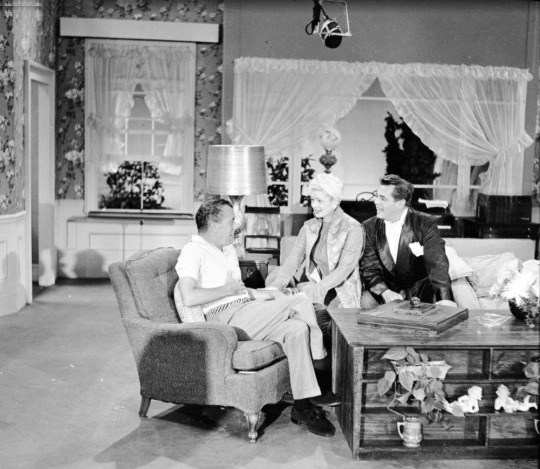
When Sullivan finally arrives at the Arnaz home, they rush him off his feet and pretend not to have already heard the news. Sullivan finally spills the beans.
Lucy: “'Toast of the Town' and the whole slice about us!”

When Sullivan asks Lucille for a cigarette, the Philip Morris bellhop Johnny Roventini literally pops out of the coffee table and gives him one! Although Philip Morris was not a sponsor of “Toast of the Town,” the gag acknowledges the company's initial support of “I Love Lucy.”
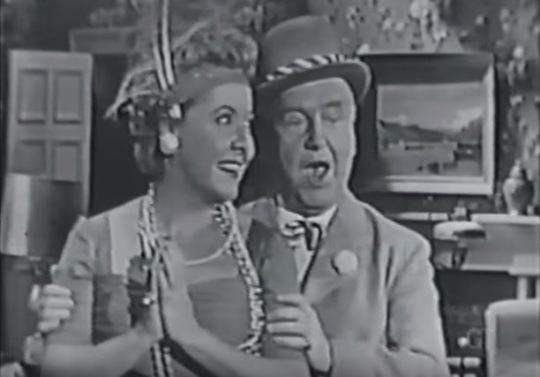
Vivian Vance just happens to drop by – and then almost immediately Bill Frawley. The just happen to be ready to regale Sullivan with a song, “Hullaballoo,” which Frawley says is an old vaudeville tune from 1913. He also claims that they previously performed it “on one of the old Lucy shows” but no such song was ever sung by Fred and Ethel on “I Love Lucy.”
A curtain then closes for their bows. Sullivan reminds Vivian that they last met when he presented the Emmy Award to “I Love Lucy” in Hollywood. He recalls first meeting Frawley in Leone's Restaurant. Jimmy Walker introduced him to Sullivan. Walker was mayor of New York City from 1926 to 1932, when Sullivan was a news correspondent.

Sullivan discusses the film Bataan featuring Desi Arnaz and Robert Taylor. Baatan (1943) was an MGM film about the World War II Battle of Bataan, a region of the Philippines.
youtube
After a Mercury commercial narrated by Julia Meade, Ed Sullivan introduces the trailer from The Long, Long Trailer, a 1954 color film based on a novel of the same name by Clinton Twiss. It is about a couple who buy a new trailer home and spend a year traveling across the United States.The film stars Lucille Ball as Tacy Collini and Desi Arnaz as Nicky Collini. The characters' names were changed from the book to sound more like ‘Lucy and Ricky’ (Tacy and Nicky, say it fast).

Desi Arnaz performs his signature song “Babalu.” He performed the song on “I Love Lucy” in "The Audition" (ILL S1;E6) and in "The Ricardos Visit Cuba" (ILL S6;E9), where Desi was joined by Richard Keith (Little Ricky). Other times it was partially heard or sung for comedic purposes, such as in "Lucy Hires an English Tutor" (ILL S2;E13), “Ricky's Life Story" (ILL S3;E1), "The Publicity Agent" (ILL S1;E31) and “The Young Fans" (ILL S1;E20). Desi Arnaz first recorded the song in 1947, although he had performed it as part of his nightclub act prior to that.
After Desi finishes singing, Sullivan tells his audience that Desi has had a fever of 101 all day, but insisted on singing “Babalu” anyway.
Finally, the "Circus Saints and Sinners Luncheon" begins, a formal tribute (the actual “Toast” of the town) with speeches from and about the Arnazes.
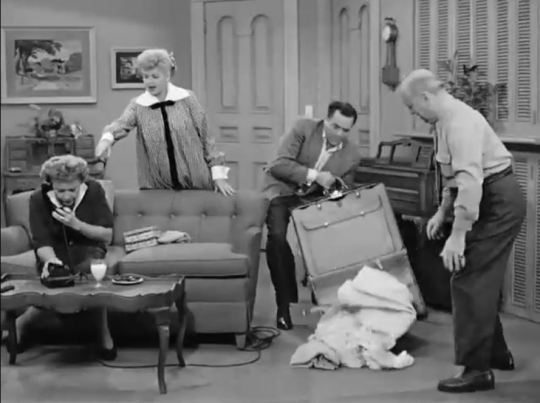
A clip from “Lucy Goes to the Hospital” (ILL S2;E16), which first aired on January 19, 1953. This was Desi Arnaz’s favorite episode.This is the episode that made “I Love Lucy” a national phenomenon. It is estimated that 72% of the American public who owned a television tuned in to see the birth of Little Ricky. His birth was timed to coincide with Desi Jr.'s birth, that same day. This episode aired the day before the inauguration of President Eisenhower and five months before the coronation of Queen Elizabeth II. More people watched this “I Love Lucy” episode than either one of those televised historic events.
To kick things off, Ed Sullivan reads a letter from Bernard Baruch (1870-1965). Baruch was a financier and powerful political consultant who had served with Sullivan on a Government-appointed Entertainment Committee to bolster post-war morale in America.
Toastmaster Tex O’Rourke discusses Ball and Arnaz’s childhoods and their early work in show-business.
Baseball player Dusty Rhodes some brief comments of his own.
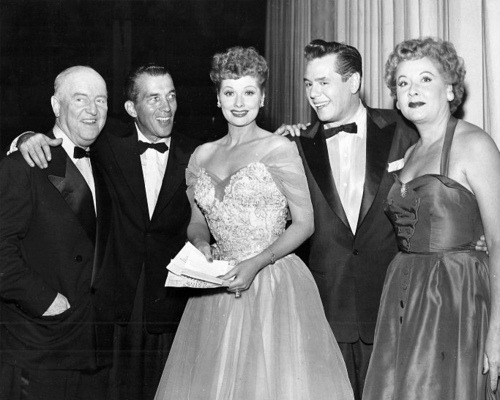
Lucille Ball is first to make her remarks, thanking the networks and production staff of “I Love Lucy,” and ultimately Desi:
Lucy: “This guy, who seems to be in all places at once, making like an actor, a banker, a politician – in short, a producer – gets my vote as the greatest producer of all time. And I have two little Arnazes at home to prove it.”
Desi Arnaz expresses his appreciation to Lucy and the United States of America for giving him the opportunities he has enjoyed.
Desi: “We came to this country and we didn't have a cent in our pockets. From cleaning canary cages to this night in New York is a long ways. And I don’t think there’s any other country in the world that could give you that opportunity.”
Both Lucy and Desi become visibly emotional while making their speeches. "Desi was very sincere about that," said Madelyn Davis, who along with her partner, Bob Carroll Jr., wrote every episode of the first four seasons of “I Love Lucy” with Jess Oppenheimer. "Lucy got teary and even Ed Sullivan. Desi wasn't kidding. They had nothing."

The show includes Lincoln Mercury commercials starring Ed Sullivan. Lucy and Desi had participated in such commercials in their first appearance on “Toast of the Town” in April 1954. During the sketch that starts the show, Lucy says the words “High dramatic” and Ed reminds her that on his show, it is “Merc-O-Matic,” which was Lincoln Mercury's own automatic transmission, introduced in 1951.
This Date in Lucy History – October 3rd

"Lucy Visits Grauman's" (ILL S5;E1) – October 3, 1955
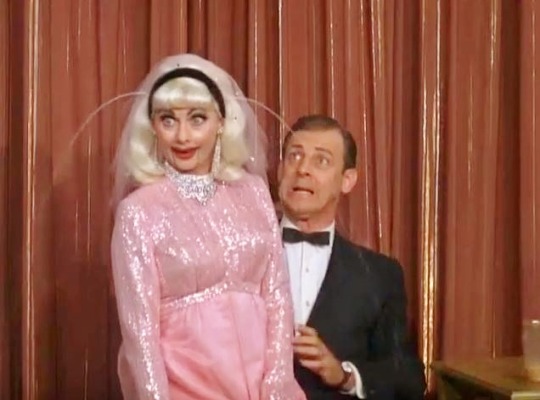
"Lucy and Paul Winchell" (TLS S5;E4) – October 3, 1966

#Toast of the Town#The Ed Sullivan Show#Ed Sullivan#Lucille Ball#Desi Arnaz#I Love Lucy#Vivian Vance#William Frawley#1954#CBS#John Wray#Harry Chesney#Johnny Roventini#Howard Dietz#Don Dixon#John Hodiak#Tex O'Rourke#Circus Saints and Sinners#Dusty Rhodes#New York Giants#Robert Taylor#Bataan#Keenan Wynn#Julia Meade#Marjorie Main#The Long Long Trailer#MGM#Eve Arden#Don Sharpe#Hullabaloo
2 notes
·
View notes
Text
The Real Housewives of QAnon
The Real Housewives of QAnon
[ad_1]

Collage by Lizzie Gill
Marjorie Taylor Greene, the Republican nominee for Georgia’s 14th congressional district, is like a lot of white women you might encounter in the suburbs. She has long blonde hair and does CrossFit. She wears cute dangly earrings, tasteful blouses, and sheath dresses you could get off the rack at Ann Taylor. She was born in 1974, and received a business…
View On WordPress
0 notes